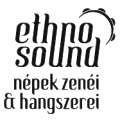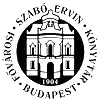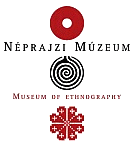Difference between revisions of "Kategória:Yolnguk"
(Új oldal, tartalma: „A Yolngu gyűjtőnév az Ausztrália északi részén elterülő Arnhem-föld északkeleti csücskében élő őslakos klánokra használatos; jelentése ’személy’. A…”) |
(gFhYueYdYu) |
||
| 1. sor: | 1. sor: | ||
| − | + | Hi ChristianFirst of all I would like to say how much I enjoyed reiadng your Tagging, Metaphor and Web 2.0! I thought I would jot down a couple of my thoughts.First, forgive me, but I can’t help but seeing some irony in the piece. I decided to do a little search on the interweb using some ‘tags’ I put in ‘Indigenous Australians Stories writing Yolngu’ and sure enough I found a fantastic article – yours (on page 3)! I also searched ‘Indigenous knowing knowledge local knowledge stories writing’ search terms that conceivably could have been searched by someone in Africa, and found it again!I think this highlights the transformation of how information, opinions and knowledge can now be freely shared and questioned to stimulate ideas with anyone in the word with access to the internet (1.4 billion people). I think this is a major transformation from say 50 years ago when I would have only heard about your views face-to-face or if you wrote into a paper, magazine or similar.I guess your main question is – are these good? I think they are. I believe the freedom to express ideas, stimulate discussion and the benefit that global communication and increased diversity of ideas have is positive overall. Take, for example, the use of Facebook, Twitter and TXTs to help citizens in repressive regimes to report on real news bypassing censors (however briefly) look what is happening in Iran at the moment. Another example I thought was interesting was that Twitter was reporting the Chinese earthquake disaster well before the royal geological society, and the first BBC report used twitter feeds. The previous earthquake disaster was covered up for over 3 yrs!. But I agree there here are negative aspects too.In regards to your major concern about whether ‘tags’ correctly describe what they tags, I acknowledge that tagers may not always correctly tag their subjects. But on a whole I would have to say that I think they do. When you look through flickr or similar for a specific subject using tags I would say the vast majority of the images correctly tagged. Likewise google searches generally are pretty good at directing you to the right information. I am guessing, however, that your concern may not also relate to how these tagged images can be a gross invasion of privacy and human rights?? I also have this concern, but this invasion also goes back to when the picture was taken.Another of your questions I found interesting was ‘Are photos representing Africa helping make space for African communities gain control over how these technologies are used?’ At the moment I don’t think they are. But I am not sure that any community, whether in Africa or Melbourne, can gain control of how these technologies are used. Looking through the ‘interesting’ flickr photos using some African country tags the one thing that stuck me was how beautiful and positive these images were. Looking back at the representation of Africa in traditional media platforms like print and TV, the one thing that most people associate with Africa is negative e.g., war, famine and crises. I think that these newer platforms, while not perfect, do provide new ways to look at the world.In considering ‘related tags’ I agree that tags that people use are prejudiced by stereotypes and beliefs and you provided some very good examples. The link between ‘indigenous’ and ‘child’ tag and your question as to why indigenous is related to childishness made me think –could it be that people (tourists) often take pictures of indigenous children?Anyway sorry for rabbiting on, keep writing your blogs – great stuff!Michael | |
| − | + | ||
| − | + | ||
| − | + | ||
A lap 2012. május 21., 02:52-kori változata
Hi ChristianFirst of all I would like to say how much I enjoyed reiadng your Tagging, Metaphor and Web 2.0! I thought I would jot down a couple of my thoughts.First, forgive me, but I can’t help but seeing some irony in the piece. I decided to do a little search on the interweb using some ‘tags’ I put in ‘Indigenous Australians Stories writing Yolngu’ and sure enough I found a fantastic article – yours (on page 3)! I also searched ‘Indigenous knowing knowledge local knowledge stories writing’ search terms that conceivably could have been searched by someone in Africa, and found it again!I think this highlights the transformation of how information, opinions and knowledge can now be freely shared and questioned to stimulate ideas with anyone in the word with access to the internet (1.4 billion people). I think this is a major transformation from say 50 years ago when I would have only heard about your views face-to-face or if you wrote into a paper, magazine or similar.I guess your main question is – are these good? I think they are. I believe the freedom to express ideas, stimulate discussion and the benefit that global communication and increased diversity of ideas have is positive overall. Take, for example, the use of Facebook, Twitter and TXTs to help citizens in repressive regimes to report on real news bypassing censors (however briefly) look what is happening in Iran at the moment. Another example I thought was interesting was that Twitter was reporting the Chinese earthquake disaster well before the royal geological society, and the first BBC report used twitter feeds. The previous earthquake disaster was covered up for over 3 yrs!. But I agree there here are negative aspects too.In regards to your major concern about whether ‘tags’ correctly describe what they tags, I acknowledge that tagers may not always correctly tag their subjects. But on a whole I would have to say that I think they do. When you look through flickr or similar for a specific subject using tags I would say the vast majority of the images correctly tagged. Likewise google searches generally are pretty good at directing you to the right information. I am guessing, however, that your concern may not also relate to how these tagged images can be a gross invasion of privacy and human rights?? I also have this concern, but this invasion also goes back to when the picture was taken.Another of your questions I found interesting was ‘Are photos representing Africa helping make space for African communities gain control over how these technologies are used?’ At the moment I don’t think they are. But I am not sure that any community, whether in Africa or Melbourne, can gain control of how these technologies are used. Looking through the ‘interesting’ flickr photos using some African country tags the one thing that stuck me was how beautiful and positive these images were. Looking back at the representation of Africa in traditional media platforms like print and TV, the one thing that most people associate with Africa is negative e.g., war, famine and crises. I think that these newer platforms, while not perfect, do provide new ways to look at the world.In considering ‘related tags’ I agree that tags that people use are prejudiced by stereotypes and beliefs and you provided some very good examples. The link between ‘indigenous’ and ‘child’ tag and your question as to why indigenous is related to childishness made me think –could it be that people (tourists) often take pictures of indigenous children?Anyway sorry for rabbiting on, keep writing your blogs – great stuff!Michael
A(z) „Yolnguk” kategóriába tartozó lapok
Az összesen 5 lapból a következő 5-t listázza ez a kategóriaoldal, a többi a további oldalakon található.


